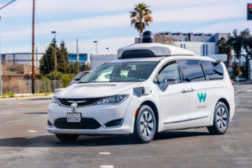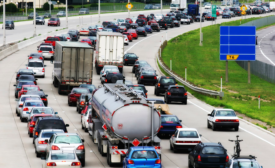A FairWarning Story
Home » Keywords: » driverless vehicles
Items Tagged with 'driverless vehicles'
ARTICLES
Lessons from a semi-driverless vehicle
You can get numb to tech warnings & stimuli
October 12, 2017
FairWarning Reports
Growing momentum for self-driving cars worries safety advocates
June 3, 2016
Become a Leader in Safety Culture
Build your knowledge with ISHN, covering key safety, health and industrial hygiene news, products, and trends.
JOIN TODAYCopyright ©2024. All Rights Reserved BNP Media.
Design, CMS, Hosting & Web Development :: ePublishing



